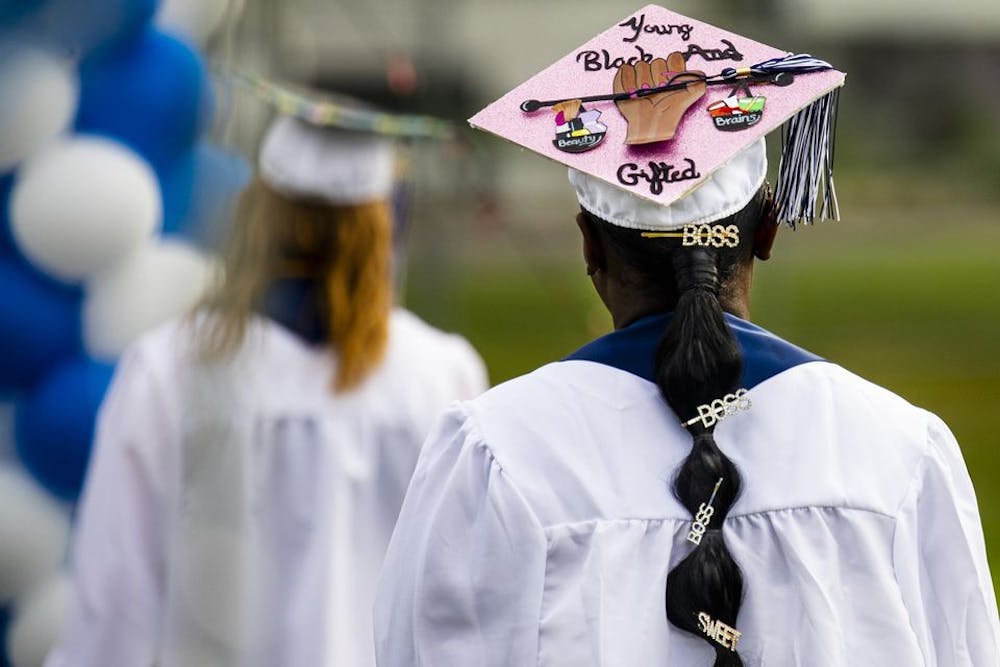“I have a dream that one day this nation will rise up and live out the true meaning of its creed: We hold these truths to be self-evident: that all men are created equal,” Dr. Martin Luther King Jr. said during his 1963 I Have a Dream speech.
King used his words to bring awareness of the unjust treatment Black men and women underwent throughout the U.S. His accomplishments brought progress in racial inclusivity, making it easier for Black students to receive higher education.
“I have a dream that my four little children will one day live in a nation where they will not be judged by the color of their skin but by the content of their character,” King said.
In the last 15 years, IU-Bloomington has seen a 27.5% increase in African American degree-seeking students. However, with an increase of African American students comes the issue of how colleges can better serve their minority student population, especially on Predominantly White Institutions (PWI).
PWI’s, or colleges where more than 50% of the student population is white, historically cater their classes, programs and all around college experience to white students. Placing a Black student in an environment where they have to adjust to an educational system made for white people by white people can be detrimental to their success. This placement can also cause Black students to develop stricter self-expectations.
Freshman David Mayes III said during his first semester at IU, he felt the need to make a good impression by being more outspoken when taking classes in which most of his classmates were white.
In one of his first college classes, his white professor asked the class to describe a photograph, and Mayes, being taught to stand out and work harder when among his white peers, raised his hand immediately and answered the question.
According to an article in the Journal of Black Studies, Black students are less likely to feel as if they belong at PWI’s. Mayes has felt a sense of not belonging while living in an on-campus dorm where the majority of his floormates are white, he said.
“It feels weird to be the only one,” he said. “It would be nice to have more Black people on my floor.”
Mayes said out of around 73 students, he has only spoken to about 10 of them.
Black Student Union President Ky Freeman equated his experience on campus to feeling like a statistic in an Indiana Daily Student article.
Freeman said he wants to see real change at IU, not empty promises and hypocritical statements received in emails from IU.
The COVID-19 pandemic has limited the number of in-person classes, and for Mayes this means he has not been able to socially interact with students and professors like he would during a regular semester.
“I haven’t gotten the full IU experience,” he said. “I haven’t experienced my needs not being met as a Black person yet.”
While he has not had any negative racial experiences, he said he still anticipates that some time during his college career he will be met with racial discrimination.
As his college career continues, Mayes wants to be able to connect more with the Black students on campus, and he plans on doing so by attending and participating in Black student-led events.
While we celebrate the accomplishments of King, it needs to be known that his work has not and will not solve all racial discrimination against Black students at PWI’s. To solve these issues, institutions need to work together with their minority student population to dismantle and reconstruct their admissions process.
Institutions can amend the admissions process by eliminating costs like application fees. This small change could be an obstacle for many minority students when applying for colleges, and by getting rid of this fee, more students who struggle financially have the opportunity to be admitted into the school.
This will allow more students with different racial backgrounds to attend PWI’s. By immersing the white student population in more diverse sets of people, PWI’s can create a more inclusive community.
Another way IU can work together with its minority students is by doing more racial bias training on professors and educating its students on contemporary racism.
Making an effort to provide for the needs of all students, these institutions can not only become more racially inclusive, but they can also start contributing to King’s vision of true equality in America.
“We can always look to Dr. King’s actions – and, especially, his words – to remind us of what we are fighting for and why we must continue to fight,” the NAACP said in its online MLK memorial.






